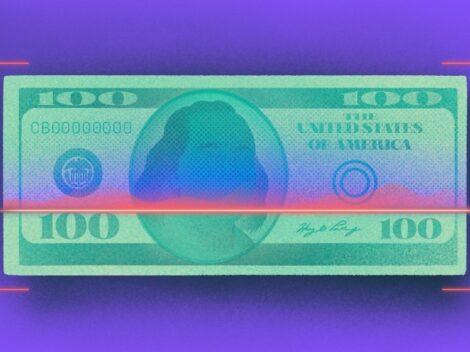Have you watched an episode of “Antiques Roadshow?” If so, you already know how to correctly price a funding round.
I can see you’re confused, allow me to explain.
Picture the scene: A prospective seller has brought in a vintage watch for appraisal. They take it to a recognized expert who offers a well-informed (and neutral) perspective on what price it should fetch at auction.
The expert will consider a range of factors in the appraisal.
Looking to the future, they’ll consider the rarity of the watch and therefore how much more of a premium it will command as the supply diminishes over time. Scarcity drives value upward. You can consider this an estimation of growth in value, or future returns.
Looking at the present, they’ll consider the specific history and condition of the watch, and — with those factors in mind — how it compares to similar watches that have been sold at auction recently. You can consider this as an estimation of value through comparison.
Finally, looking to the market, they’ll consider the trends. Does the watch represent a particular style or category that is popular at that moment in time? Have there been recent events that may spike interest or attention for watches of that type?
Across these three perspectives, the expert is looking to triangulate a valuation with as much confidence as possible. The purpose is to inform the seller’s expectations and to help determine the appropriate opening bid to ensure the auction goes well.
Let the bidding begin
The ultimate test is the auction itself. Here, a room full of buyers will inspect the watch, including the value implied by the appraisal, and make a judgment as to whether or not they want to bid. There are a few major factors which will influence the final outcome.
Who are the typical buyers of this type of watch? Are they institutional investors looking to build a portfolio of alternative assets, who might be more heavily influenced by other market cycles? Or are they private collectors, who are more discerning and price sensitive, but also more consistent in their interest?
Does your opening bid align with buyer expectations? Through the details provided in the auction brochure, have you made a good case for the appraised value? Well informed private buyers might be able to intuit a lot of the value, while larger institutional investors may need more education.
Finally, for the specific watch you are offering, do you have the right buyers in the room? If it’s a part of a collection of watches, are those collectors present? If it represents a popular style, was that broadcast widely enough to attract interest? Ideally, you want multiple interested parties to ensure bidding drives the price upward.
So, the hammer comes down. Bidding is closed. The watch has sold. It had a valuation, and now it has a price.
Funding your startup
As you have probably already inferred, this is an allegory for startup fundraising with one key lesson.
Many investors will tell you that bids are all that matters; that you should just let the market decide the terms. That’s an oversimplification which assumes a lot of sophistication on behalf of investors, and a lot of efficiency in the market. While that’s an attractive idea for investors, it’s just not realistic.
This assumption ignores the work that founders have to put into running a solid fundraising process to ensure that investors are aligned: building a coherent pitch, marketing the opportunity, and educating the audience.
Valuation is rational and objective, but theoretical. Price is subjective and opaque, but absolute. Make sure you get it right.
Dan Gray, a frequent guest author for Crunchbase News, is the head of insights at Equidam, a platform for startup valuation, and a venture partner at Social Impact Capital.
Illustration: Dom Guzman

Stay up to date with recent funding rounds, acquisitions, and more with the Crunchbase Daily.



![Illustration of remote meet on cellphone, unicorn chess piece and money. [Dom Guzman]](https://news.crunchbase.com/wp-content/uploads/business-strategy-470x352.jpg)
![Computer generating AI data. [Dom Guzman]](https://news.crunchbase.com/wp-content/uploads/AI-generated-470x352.jpg)

![Illustration of a guy watering plants with a blocked hose - Global [Dom Guzman]](https://news.crunchbase.com/wp-content/uploads/quarterly-global-3-300x168.jpg)
67.1K Followers